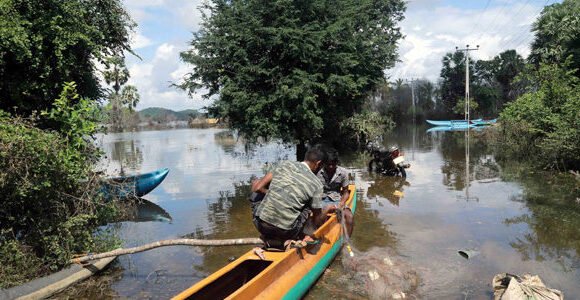
Why Do People Not Register?
-Herath Mudiyanselage Asiri

The process of registering individuals is a crucial aspect of governmental administration, serving as a fundamental requirement for accessing citizens’ rights, administrative services, and support systems. In an era where everything is becoming increasingly digital, it is noticeable that in some areas of Sri Lanka, people do not actively participate in such registration processes. Examining the social, economic, and cultural factors influencing this issue is a timely necessity.
One of the main reasons affecting the registration process is the low level of education. Due to a lack of basic knowledge about the importance of government registration procedures—especially in rural and remote island communities where educational opportunities are limited—such situations may arise. Additionally, residents of rural settlements, due to their minimal education and low literacy levels, do not actively engage in the process of personal registration. There are instances where they do not show interest in obtaining birth certificates for their children at birth or valid marriage certificates upon marriage.
Furthermore, the lack of familiarity with new technological processes can also be identified as a significant reason. As many government registration procedures are now conducted online, individuals who lack the necessary technological knowledge tend to avoid engaging with such services.
Past instances of corruption and inefficiency in government registration processes have also contributed to a decline in public trust. Many people have criticized the fact that, despite registering for certain aid programs or projects, they have not received the intended benefits.
In some cases, fraudulent registration schemes have been used to collect people’s personal information, further complicating the situation. These experiences have instilled fear and suspicion among the public. Observations reveal that past experiences have undermined public confidence in government institutions and state officials.
Additionally, there is a prevailing concern that registering might expose personal data and identities to unauthorized external parties. Issues such as corruption within the administrative system, poor service delivery by government officials, and the failure to receive promised benefits have also contributed to public distrust.
A particular concern arises during election periods when registration processes are suddenly expedited, leading people to develop a negative perception of these initiatives.
Among rural communities, in particular, there is a common belief that maintaining a “peaceful life” is best achieved by minimizing interactions with government interventions. Rather than fearing government involvement, they seem more focused on avoiding it altogether for their own convenience.
Economic barriers are an important reason for people avoiding registration. The travel expenses, time, and loss of daily income involved in visiting government institutions also influence this. For workers and farmers engaged in their daily tasks, standing in long queues at government offices is a difficult and inconvenient experience. The lack of time and transportation facilities also affects this. The closure of government institutions on weekends is another challenge for the working population.
For people to register, they must first receive accurate information. However, due to the lack of proper awareness efforts by the government, people often remain uninformed about these services. At times, negative responses from government officials and the use of complex language in institutional notices also contribute to people avoiding this process.
By identifying these social, economic, and psychological factors, the government and affiliated institutions can implement systematic measures to address them. Increasing public awareness: Communication programs should be implemented to educate people in both rural and urban areas. Expanding transportation facilities and programs: Rural-level service centers (mobile services) should be established to facilitate registration. Modern technological tools and training programs: Training programs should be conducted for online procedures, enhancing people’s technological knowledge. Building trust: Establishing trust between government institutions and employees among the public is essential.
Ultimately, while registration is essential for people to obtain citizenship rights and assistance, understanding the underlying reasons for reluctance and implementing effective solutions will create an opportunity to build successful social governance.








